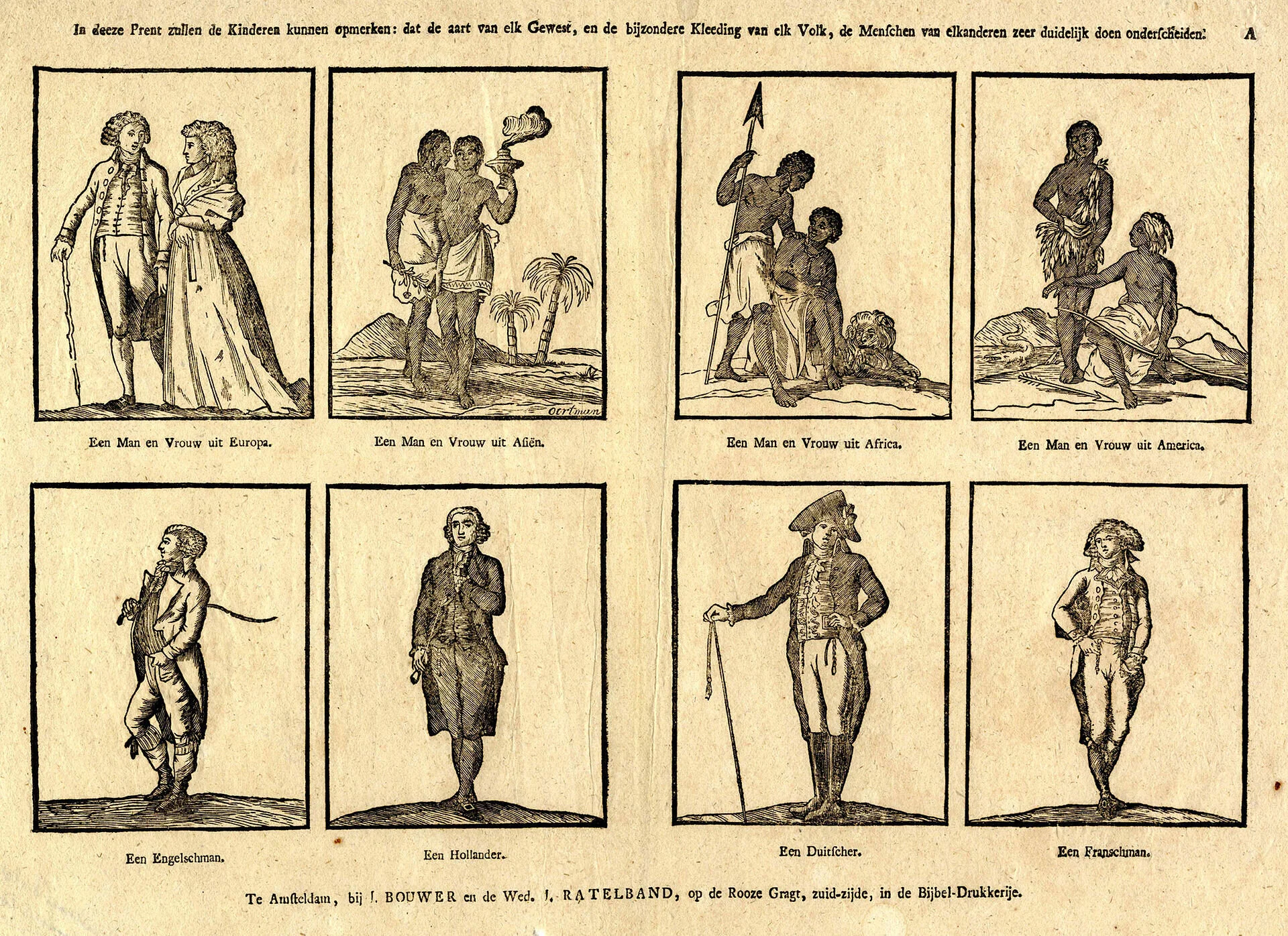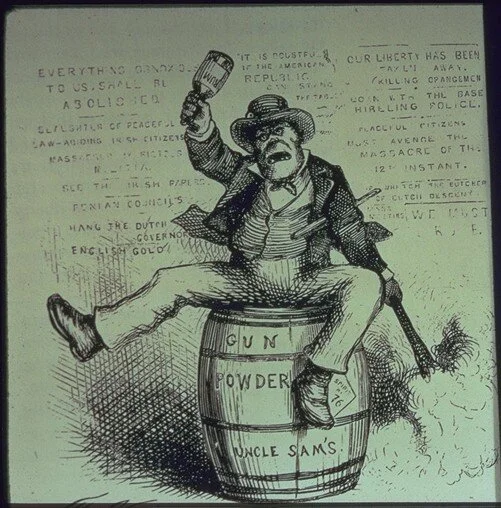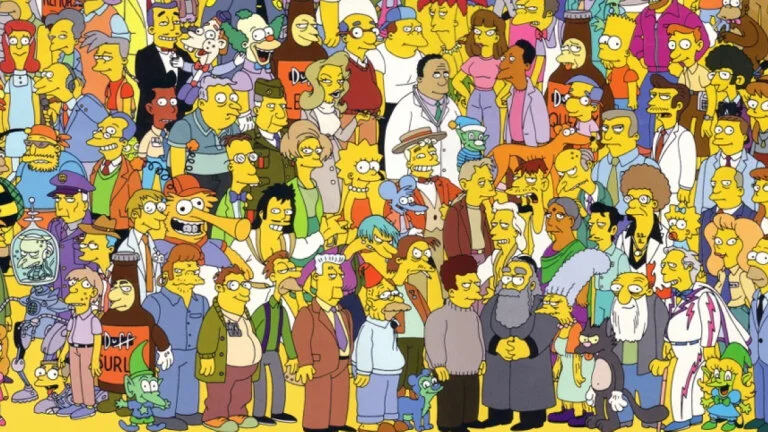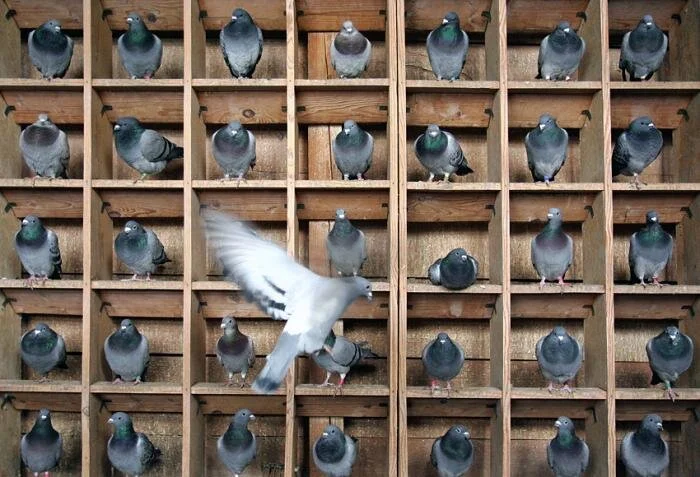By The Landlord
“Once you label me you negate me.” – Soren Kierkegaard
“Stereotypes are ways of making extremely primitive and simple differentiations. Differentiations of gender, race, class, social status - so ordinary social life is very much built upon a whole repertoire of stereotypes we carry around. And those are immediately laminated onto people, and it isn't just visual.” – W. J. T. Mitchell
“This is a horrifying thing about life. All those things you fought against as a youth: you begin to realize they're stereotypes because they're true.” – David Cronenberg
“Embrace what makes up you. Some stereotypes are true - I love chicken, I love basketball. But who cares? Embrace it. Be who you are, and don't be ashamed of what that is.” – Ice Cube
“Stereotypes fall in the face of humanity. We human beings are best understood one at a time.” – Anna Quindlen
“All official institutions of language are repeating machines: school, sports, advertising, popular songs, news, all continually repeat the same structure, the same meaning, often the same words: the stereotype is a political fact, the major figure of ideology.” – Roland Barthes
“I am a stereotype. I am an effeminate man.” – Quentin Crisp
They are everywhere and within everything we expect, perceive, do and say, subconsciously and consciously, across gender, race, class, nationality, age and profession. They are the boxes and the labels on which much of society is packaged and delivered, but also that which we try attempt to break open and contradict. We reject them of ourselves, but often accept them of others.
We’re evolved to ape each other and so naturally fall into behavioural patterns, but at the same time refuse be categorised. Stereotypes are both true and untrue. They often fit crowds, but as individuals, there is always nuance hidden by cognitive bias. It’s this tension around established norms, types and cliches are the basis of so much creativity – comedy, film, music and many other artforms, and this week it’s all about songs that portray, reject or play with, in whatever tone, in general or detail, the very idea of the stereotype.
With recent ongoing online racism against black British footballers, stoked up and tacitly in a climate of oopularism and jingoism by a hypocritical prime minister Boris (who infamously wrote that black people have “watermelon smiles” and Muslim burkas are like “letterboxes”) Johnson , sometimes it makes you wonder whether those in power really have ever really moved on at all from the language, images and value systems of white supremacy and old colonialism.
An 18th-century Dutch depiction of ethnography
But politicians and particularly tabloid newspapers use the language of stereotypes continuously to perpetuate them. The machine of marketing loves them, to put us into boxes of particular demographics, behavioural patterns, and purchasing predictions.
But one of the great things about creativity is when you smash the stereotype and crush the cliche. ”The great moment I think in human consciousness is when you realise that the object in front of you is perhaps not nameable or is new, it does not fit a stereotype, and so you need to reconfigure your whole structure of knowledge to account for it, adds W. J. T. Mitchell, Professor English and Art History at the University of Chicago.
But from where does the term derive? It comes from the French adjective stéréotype which in turn comes the Greek words στερεός (stereos) meaning "firm, solid" and τύπος (typos) meaning impression, therefore a firm impression of an idea or person. It also has a practical application, coined in the printing trade in 1798 by Firmin Didot, to describe a printing plate that duplicated any typography. So the duplicate printing plate, or the stereotype, is used for printing instead of the original, and offers up the idea of repeating the same image or idea.
Stereotype as a noun became to appear in written form in 1850 meaning an image perpetuated without change, but the idea only began to appear more readily in the language when in 1922 that "stereotype" was used in the psychological context by American journalist Walter Lippmann in his work Public Opinion.
The Usual Irish Way of Doing Things - a drunken Irishman lighting a powder keg from Harper's Weekly, 1871
Hollywood is mostly a huge driver for so many stereotypes that are reused as commercially successful social blueprints, and they’re regarded as comfortingly familiar to audiences. White men always in leading roles, their female counterparts always young thin and white, black actors and actresses, are almost always second string companions or threatening, violent or sexualised. Then the Latino is either macho or the Latina a slutty vixen, joined by by your classic gang members, subservient illegal immigrants, or just smiling, simple street entertainers, such as Mexicans with sombreros. English actors are almost always sophisticated and charming, but best as evil villains with bad teeth. Russians are always charmless, ruthless thugs. You get the picture…
Alongside advertising, stereotypes run through some of the best of TV, literature, music and film as much as in those that explode them. As brilliant and inventive as it is, The Simpsons works exactly on this longstanding joke, from the lazy, greedy, and dim-wittedHomer Simpson to the cornershop Indian Apu, the nerdy, obese Comic Book Guy, depressed, paranoid Jewish comic Crusty The Clown to the Italian mafia type gangsters. At least no part of society is safe from this light-hearted stereotyping.
No one is safe: The Simpsons: entertains stereotypes across every part of society
But more aggressive, hypocritical racial stereotyping happens in every culture and every nation. This is captured brilliantly in Spike Lee’s Do The Right Thing (1989), in this scene where Spike Lee as Mookie argues with Italian pizza co-worker John Turturro as Pino about racial prejudice before members of the community mouth off about others in all the usual derogatory terms. It’s a clever portrayal of universal stereotyping.
And here, on a wider scale, people from 70 nations point to some of the stereotypical labels they encounter from other nations.
But can music also stir up and express these cliches? Here are some examples from 35 different countries, but no matter how unexceptional they are, with each it’s impossible not to visualise these established archetypes and cultural values. They are both insultingly blunt, but also inescapably typical.
Comedy, cleverly or distastefully, often runs on such stereotypes, but what about when the two are combined? British TV in the 1990s was particularly focused on such characterisations as a way to both satirise and perpetuate them through the vehicle of the catchphrase, on BBC’s The Fast Show no genre was more targeted than all the cliches of jazz, both in presentation and style. As Jon Thompson’s character always put it: “Nice!” In this clip, presented by his hybrid of Whispering Bob Harris and Jules Holland, the stereotyped performer types are shaken up into a weird mashup of other genres and artists, from Lee Scratch Perry to George Clinton to Jah Wobble, prog-jazz and more, the form of Jeremy Kwee:
So which type are you? None of them, of course! Portraying or satirising, explaining or exploding, this week we explore these social generalisations whether in song lyrics or even through musical style. So then, from dubbing the pigeonholes, where might you put play out stereotyping in the song? To balance cliche and creativity in perfect harmony, I’m delighted to welcome our next guest guru to the chair, and delightfully making another debut is the wonderful Loud Atlas. Place your songs in comments below until the bell rings on Monday at 11pm UK time (BST) for playlists published next week. It certainly won’t be typical. Or will it?
Little boxes. We’re all different, aren’t we. None of us can be pigeon-holed …
New to comment? It is quick and easy. You just need to login to Disqus once. All is explained in About/FAQs ...
Fancy a turn behind the pumps at The Song Bar? Care to choose a playlist from songs nominated and write something about it? Then feel free to contact The Song Bar here, or try the usual email address. Also please follow us social media: Song Bar Twitter, Song Bar Facebook. Song Bar YouTube, and Song Bar Instagram. Please subscribe, follow and share.
Song Bar is non-profit and is simply about sharing great music. We don’t do clickbait or advertisements. Please make any donation to help keep the Bar running:





